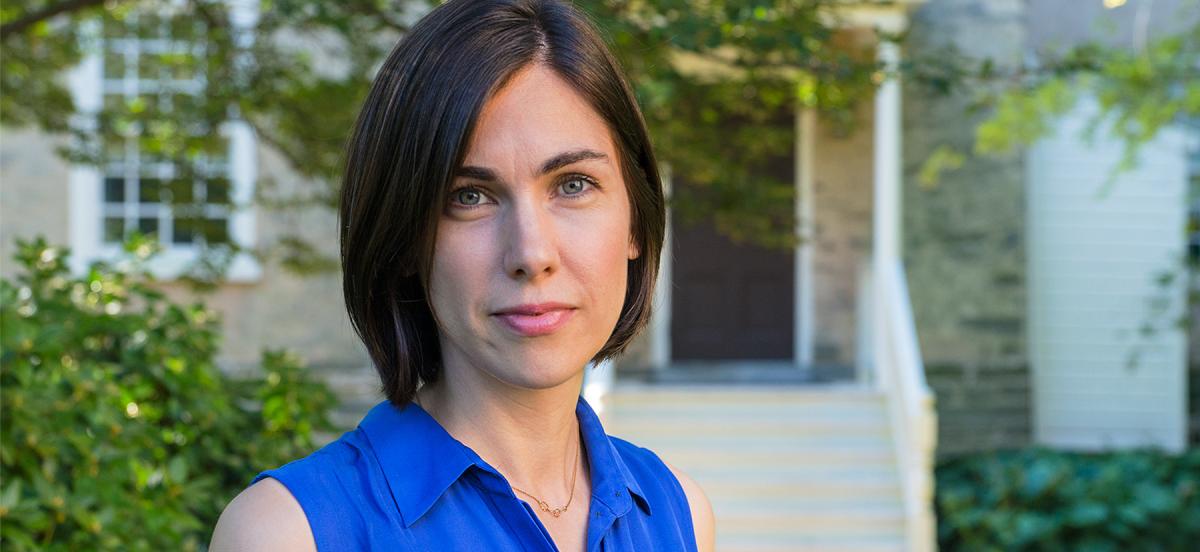Molly Farneth Wins NEH Summer Stipend

Associate Professor of Religion Molly Farneth has earned a Summer Stipend from the National Endowment for the Humanities to begin her research on Grace Lee Boggs.
Details
The associate professor of religion will use the support to study the activism and religious development of writer Grace Lee Boggs in Detroit this summer.
Associate Professor of Religion Molly Farneth has been awarded a summer stipend by the National Endowment for the Humanities to fund her research on Grace Lee Boggs, an American activist and public intellectual who lived from 1915 to 2015.
When she learned she had received the stipend this spring, Farneth was thrilled, as not only is the financial support useful, but she recognized it to be a vote of confidence in her proposed project—researching Boggs’ life, pragmatism, and political work at the Walter P. Reuther Library at Wayne State University in Detroit.
“I’m imagining this as the first step in a longer-term project,” said Farneth, “an intellectual history of Boggs that situates her within the philosophical and political tradition of radical American pragmatism.”
Boggs attended Barnard and Bryn Mawr colleges, where she studied philosophy, particularly the work of G.W.F. Hegel, Karl Marx, and American pragmatists. Her intellectualism turned into activism, when she organized for tenants rights in Chicago.
“After organizing and writing with some of the most influential Marxist intellectuals of the mid-20th century, she broke with rigid Marxism and, along with her husband Jimmy Boggs, developed her own theory of social and political change called ‘dialectical humanism,’” said Farneth. “The Boggses were driving forces of the Black freedom struggle and democratic organizing in Detroit, where they made their home, and beyond.”
Farneth is interested in learning how Boggs’ relationship with religion developed as her activism progressed.
“[Boggs] was raised as a Christian, but by the time she entered college, she had distanced herself from formal religious practice,” Farneth said. “Through the 1940s and 50s, she was dismissive of religion, influenced by Marxist attitudes toward religion as mere ideology; but later, she came to recognize religious people and communities as allies in the struggle for justice, and to see social and political change as dependent on what she called ‘spiritual evolution.’”
In particular, Farneth is interested to see how her communication with radical religious leaders, including Malcom X and Rev. Albert Cleage, corresponded to this shift in religious philosophy. She will be using this summer’s research to write an article, which will be the first step in a long-term book project, an intellectual biography about Boggs.



